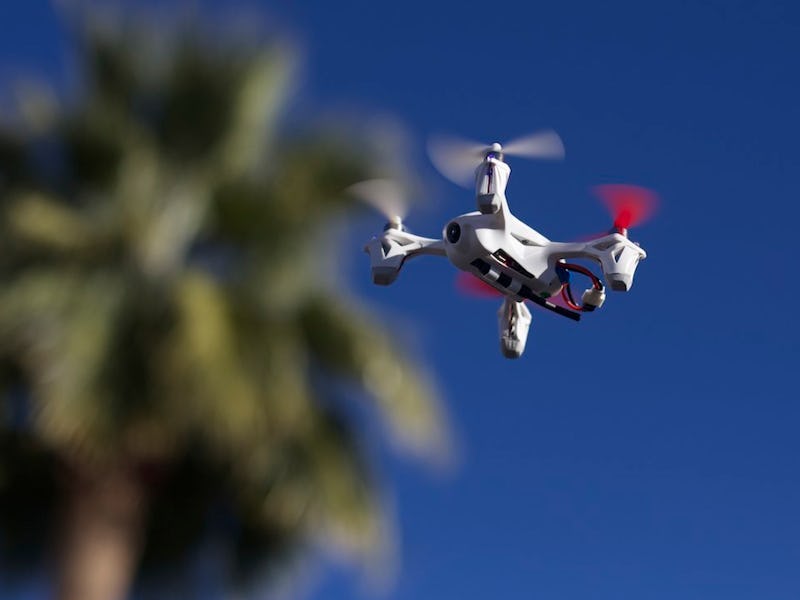Deutsche Telekom's Anti-Drone Tech Will End Your UAV Pranks
Party's over.

If you’re using a drone to fly around in places you shouldn’t be, the security industry is onto you. Deutsche Telekom has teamed up with anti-drone company Dedrone to offer a comprehensive security package for detecting drones, evacuating people in danger, and even jamming the drones with optional third party transmitters.
“We are convinced that data centers in particular, as well as major event venues and industrial enterprises, must prioritize protecting themselves from drones,” Dedrone COO Ingo Seebach said in a statement released Wednesday.
Companies wishing to protect themselves against flying nuisances will be able to order a complete Magenta Drone Protection Shield project from Deutsche Telekom starting at €30,000 ($31,837). That includes Dedrone’s DroneTracker, a modular system that uses cameras, microphones, and radio frequency scanners to identify whether that flying object is a bird or an unmanned plane. A jamming transmitter, provided by third parties like HP Wüst, can hook into the infrastructure to provide a comprehensive protection system.
The fight against drones is heating up, as organizations look to protect sensitive areas of the sky. Recently declassified footage shows the U.S. military has been researching microwave-based drone jammers since 2013. Capable of taking down multiple drones at once, the Phaser is shown on video disrupting tier 1 and tier 2 Flanker and Tempest drones, the sort easily found in stores.
For the civilian market, DroneShield has invented a Dronegun, capable of jamming communications systems in unmanned aerial vehicles (UAVs) with a badass-looking gun. With the onboard camera disrupted, the rogue pilot is able to change his mind and fly their drone back to safety without destroying it:
Deutsche Telekom thinks the new technology package is so good, it’s going to install it at two of its own facilities. The company cites a number of use cases: infrastructure facilities, which probably wouldn’t cope well with unidentified flying machines, and stadiums, which depend on a certain level of privacy. Drones may have their uses, but if you’re hoping to use one to catch a glimpse of that Coldplay concert without paying, companies are onto you.